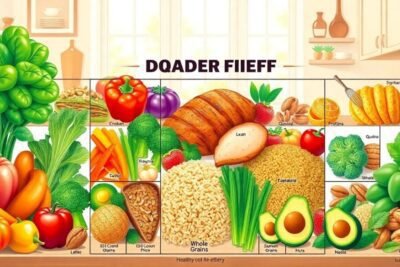
How to lower your blood pressure fast
Controlling high blood pressure is crucial for maintaining cardiovascular health. Many seek methods to achieve this quickly and effectively. In this article, we will explore various strategies to help you lower your blood pressure fast, focusing on lifestyle changes, dietary adjustments, and stress management techniques.
- How can I control my blood pressure without medication?
- What foods can help lower blood pressure quickly?
- How to lower blood pressure naturally?
- What are some simple tips to reduce blood pressure?
- How do lifestyle changes impact blood pressure?
- What are the best exercises for lowering blood pressure?
- How to manage stress to improve blood pressure levels?
- Related questions about managing blood pressure effectively
How can I control my blood pressure without medication?
Managing blood pressure without medication is possible through a combination of lifestyle changes and healthy habits. One effective method is adopting a heart-healthy diet rich in fruits, vegetables, and whole grains. This diet not only supports vascular health but also helps in weight management, which is critical for those struggling with hypertension.
Regular physical activity plays a vital role as well. Engaging in aerobic exercises, such as walking, jogging, or cycling for at least 30 minutes a day, can significantly reduce blood pressure levels. Additionally, incorporating strength training a few times a week enhances overall cardiovascular health.
It's also essential to manage sodium intake. Reducing salt consumption can lead to noticeable improvements in blood pressure. Aim to consume less than 2,300 mg of sodium per day, and consider even lower levels if you have high blood pressure. This simple change can be a powerful step in your journey to learn how to lower your blood pressure fast.
What foods can help lower blood pressure quickly?
Certain foods are particularly effective in lowering blood pressure quickly. Incorporating these into your diet can have immediate benefits. Here are some of the most impactful options:
- Berries: Rich in antioxidants, particularly flavonoids, they can improve blood vessel function.
- Beets: High in nitrates, beets can help dilate blood vessels and improve blood flow.
- Leafy greens: Vegetables like spinach and kale are excellent sources of potassium, which helps lower sodium levels in the body.
- Oats: Containing beta-glucans, oats can lower cholesterol and improve heart health.
- Fatty fish: Salmon and mackerel are high in omega-3 fatty acids, which promote healthy blood circulation.
Including these foods in your meals can provide the nutrients your body needs to manage blood pressure effectively. Additionally, stay hydrated with plenty of water to maintain optimal blood flow and overall health.
How to lower blood pressure naturally?
There are numerous natural methods to lower blood pressure effectively. One primary approach is through regular exercise, which helps maintain a healthy weight and reduces stress levels. Activities such as yoga and tai chi can also contribute positively by promoting relaxation and mindfulness.
Moreover, practicing relaxation techniques like deep breathing, meditation, or progressive muscle relaxation can significantly reduce stress hormones that elevate blood pressure. Implementing these techniques into your daily routine may help you discover how to lower your blood pressure fast in a healthy manner.
Another natural way is to focus on balancing your electrolytes. Increasing your intake of potassium, magnesium, and calcium can help regulate blood pressure. Foods rich in these minerals include bananas, avocados, nuts, and low-fat dairy products.
What are some simple tips to reduce blood pressure?
Reducing blood pressure doesn't have to be complicated. Here are some straightforward tips that can help you on your journey:
- Monitor your blood pressure: Keep an eye on your numbers regularly to track your progress.
- Limit alcohol: Reducing alcohol intake can have a positive impact on blood pressure.
- Quit smoking: Smoking cessation is crucial for improving heart health and blood pressure.
- Get adequate sleep: Aim for 7-9 hours of quality sleep each night to support overall health.
- Stay active: Find activities you enjoy to make exercise a regular part of your life.
Implementing these tips can create a positive impact on your blood pressure levels. Remember, consistency is key when adopting healthy habits to reduce blood pressure levels effectively.
How do lifestyle changes impact blood pressure?
Lifestyle changes have a profound effect on blood pressure management. Research indicates that even small modifications can lead to significant improvements. For instance, weight loss alone can lower blood pressure by a substantial amount, especially if you carry excess weight around your waist.
Additionally, dietary changes are crucial in managing hypertension. Adopting a balanced diet that includes plenty of fruits, vegetables, whole grains, and lean proteins can improve blood vessel function and overall heart health. These foods provide essential nutrients that help your body manage stress and regulate blood pressure more effectively.
Furthermore, regular physical activity helps strengthen your heart, allowing it to pump blood more efficiently. Engaging in aerobic exercise consistently can contribute to lower blood pressure readings over time, showcasing the direct link between lifestyle choices and cardiovascular health.
What are the best exercises for lowering blood pressure?
Exercise is a powerful tool for managing high blood pressure. The best types of exercises include:
- Aerobic activities: Walking, jogging, swimming, and cycling are excellent for improving heart health.
- Strength training: Lifting weights or using resistance bands can help reduce blood pressure and improve muscle tone.
- Flexibility exercises: Stretching and yoga can enhance overall well-being and lower stress levels.
- Mind-body exercises: Practices like tai chi and Pilates can improve both physical fitness and mental relaxation.
Aim for at least 150 minutes of moderate aerobic activity or 75 minutes of vigorous activity each week, combined with strength training at least twice a week. Incorporating various types of exercises into your routine will not only help lower your blood pressure but also enhance your overall quality of life.
How to manage stress to improve blood pressure levels?
Managing stress is essential for maintaining healthy blood pressure levels. Chronic stress can contribute to hypertension by triggering the release of hormones that constrict blood vessels. To reduce stress, consider the following strategies:
1. Practice mindfulness: Techniques like meditation or deep breathing exercises can help calm your mind and body.
2. Prioritize self-care: Engage in activities that you enjoy, whether that’s reading, gardening, or spending time with loved ones.
3. Establish a routine: Keeping a structured daily schedule can help manage your time better and reduce feelings of overwhelm.
4. Seek support: Talking to friends, family, or a therapist can provide emotional relief and new perspectives on stressors.
By integrating these practices into your life, you can learn to manage stress effectively, contributing to lower blood pressure and improved health overall.
How do I get my blood pressure down right now?
If you're looking to quickly reduce your blood pressure, start by taking slow, deep breaths. This can help activate your body's relaxation response and lower stress levels. Additionally, drinking a glass of water can aid in rehydrating and improving blood circulation. Focus on calming activities, such as gentle stretching or listening to soothing music, to help your body relax.
How can I lower my blood pressure urgently?
For urgent situations, consider using natural breathing techniques to calm your mind and reduce anxiety. Engage in light physical activity, like a quick walk or some gentle yoga, to promote blood circulation. If available, consuming foods high in potassium, such as bananas or oranges, can also assist in lowering blood pressure levels.
How to reduce blood pressure quickly?
To reduce blood pressure quickly, practice relaxation techniques such as deep breathing or progressive muscle relaxation. Aim to engage in moderate aerobic exercise or yoga, even if only for a few minutes, as this can help temporarily lower blood pressure. Staying hydrated and consuming a balanced, low-sodium snack can also be beneficial.
How can I lower my BP in 5 minutes?
In just five minutes, you can employ effective techniques such as deep breathing exercises. Inhale deeply through your nose, hold for a moment, then exhale slowly through your mouth. Repeat this several times to promote relaxation and reduce blood pressure. Additionally, stretching or a brief walk can further enhance blood circulation and help lower BP.
In conclusion, managing blood pressure effectively involves a combination of dietary changes, regular exercise, and stress management techniques. By understanding how to lower your blood pressure fast through these natural methods, you can improve your overall health and well-being. Remember to consult with healthcare professionals to tailor a plan that works best for you.










